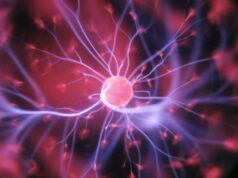 Researchers at Toronto Western Hospital in Canada have proposed a protocol that may precede in-person assessments prior to patients receiving neuromodulation therapies. Their protocol incorporates a short mental health checklist and pre-defined cut-offs on validated questionnaires to assess whether an in-person assessment—done by a psychologist—is necessary for each patient.
Researchers at Toronto Western Hospital in Canada have proposed a protocol that may precede in-person assessments prior to patients receiving neuromodulation therapies. Their protocol incorporates a short mental health checklist and pre-defined cut-offs on validated questionnaires to assess whether an in-person assessment—done by a psychologist—is necessary for each patient.
Following these efforts, Maggie Xiao, Fung Ping Wong, Amol Deshpande, Anuj Bhatia, Hemkumar Pushparaj, Kathryn Curtis, Pranab Kumar and Jamal Kara of Toronto Western Hospital (Toronto, Canada) received a Best of Meeting Abstracts Award from the American Society of Regional Anesthesia and Pain Medicine (ASRA) during its 20th Annual Pain Medicine Meeting (18–20 November 2021, San Francisco, USA).
The authors also presented their abstract outlining a study of this new protocol, entitled “Can a protocol replace mandatory psychological assessment for workup of neuromodulation therapies for pain?”, during the meeting.
Neuromodulation therapies are an advancing area of chronic pain management that work by blocking pain signals from reaching the brain and can provide substantial relief in patients for whom conservative therapies have failed.
Before implantation of a neuromodulation device, patients commonly undergo an in-person psychological assessment to evaluate potential treatment outcomes. However, the predictive value of psychological testing is not straightforward and the process can cause undue delays—an ASRA press release notes.
In the study at Toronto Western Hospital, patients who screened positive for evident, unresolved psychological conditions underwent an in-person psychological assessment, and patients who screened negative proceeded directly to a neuromodulation trial as part of a fast-track group. Of the 171 patients who underwent neuromodulation trials for pain at the study centre from July 2017 to December 2020, 57 (one in three) patients bypassed an in-person psychological assessment.
No significant differences in pain reduction outcomes were found between the psychological assessment and fast-track groups. In addition, 72% of patients in the psychological assessment group and 70% of patients in the fast-track group had a successful neuromodulation trial. Follow-up data in 110 patients showed 60% in the fast-track group and 53% the psychological assessment had good pain control at six–to–12 months.
The results suggest an algorithm incorporating validated psychological questionnaires and a mental health checklist can be used to identify patients who do not need a formal in-person psychological assessment without a negative impact on outcomes of neuromodulation therapies for pain, the release concludes. “This can help reduce wait times and optimise the utilisation of healthcare resources,” the authors stated.












